How Shiksha Counsellors Rate Student Chances of Getting into a College Abroad?
For Indian aspirants, who land on the Shiksha Study Abroad website looking for information on global universities, we have this option to check their chances of being selected in a particular university. It is called Rate My Chances (RMC). In this article, we will discuss how Shiksha RMC works and how counsellors rate the students who seek guidance.

Looking to boost your chances of getting into a top university? The Shiksha Rate My Chances (RMC) tool, powered by expert counsellors, helps you quickly assess and strengthen your admission profile for study abroad dreams. If your dream is to study in Germany, USA, UK, Canada, Australia, or any other top study abroad destination, Shiksha’s counselors are the best for you.
Shiksha counselors play a crucial role in helping students understand and improve their chances of admission. These trained professionals evaluate students' academic backgrounds, test scores, and personal goals to provide personalized guidance. Shiksha counselors begin by assessing the student's profile, which includes academic records and standardized test scores like the GMAT, GRE, or SAT, and English proficiency test score of IELTS, TOEFL, or any other test.
They then create a list of suitable universities based on the student's strengths and aspirations. This process helps students identify schools where they have a better chance of acceptance. In addition to university selection, Shiksha counselors assist with important tasks such as preparing application documents, writing SOP, and gathering LOR. They also offer support for visa applications and interview preparation.
By providing this detailed guidance, Shiksha counselors aim to boost students' confidence and improve their chances of successfully gaining admission to their desired colleges abroad.Overall, Shiksha counselors are dedicated to making the study abroad journey smoother for students, helping them take the right steps toward achieving their educational dreams
- How does Shiksha Rate My Chances (RMC) work?
- Where to find the RMC button?
- What happens on clicking the Rate My Chances button?
- How Shiksha Counsellors Rate?
- Shiksha RMC Chart
- What happens after profile evaluation?
How does Shiksha Rate My Chances (RMC) work?
RMC allows students to get an idea about how likely a university is to accept their profile if they apply to a certain programme offered by that university. Students get this option in the search results as well as on the university page. For instance, if a student wants to apply for a Master of Computer Science in Canada, s/he may directly check their chances of being enrolled in the same course offered by the same university. Read: Reasons to get Counsellor to Study Abroad
Where to find the RMC button?
When students visit the page of the university in which they want to apply and select the exact course name, which they want to pursue. Once you select a course and open the university page:
- The RMC button can be found at the bottom of the course description on the university page.
- You can also save the course offered but the university, for future reference, and download the University brochure from the top right corner for offline review.
- On the centre-right corner, there is an option to get in touch with the university representative with your queries.
Compare Multiple Universities on Shiksha
The students can also add two or more universities to compare their specific features with regarding to a particular course. To do this, they need to check the box on the bottom left corner of every result.
Predict your IELTS, TOEFL, and PTE in just 4 steps!
What happens on clicking the Rate My Chances button?
As soon as a student gets into Shiksha’s loop by clicking on the ‘Rate My Chances’ button, they are required to sign up on the website.
Shiksha Sign-up Button
The sign-up button can be found on the top right corner of every page on the Shiksha website:
Shiksha Sign-up Form
Upon clicking sign up, a form opens. The students are required to fill in details like their choice of country, course, specialisation, existing qualification, last CGPA, standardised exam score (GRE/GMAT, IELTS/TOEFL), etc. This information is required to assess a candidature. It may seem like a long process to some, but it is worth it.
Note: Shiksha counsellors give their genuine feedback on student’s profile for every university. Hence, it is recommended that students provide their counsellors with accurate information otherwise, the results may vary with the actual chance of being selected.
Once the account is created, our counsellors receive the student request of rating their chances of being enrolled in a particular university. The profile evaluation process begins within a matter of a few minutes.
How Shiksha Counsellors Rate?
Counsellor considers the following segments for evaluating a student profile:
- Academic Score: It is the latest educational qualification that matters the most. If a student is applying to pursue masters, counsellors need their bachelor’s score. Similarly, if a student is applying for bachelors, the counsellors need scores of their twelfth grade.
- Standardised Exam Score: The standardised exams that a student needs to crack as mandatory eligibility criteria for any particular country come next. These exams include GRE, GMAT, IELTS, TOEFL, PTE, and SAT. This score plays a major role in overshadowing the other limitations of an aspirant’s candidature. Therefore, Shiksha recommends the applicants have these exams appeared and keep the scores handy. This score also helps in making a candidature considerable over various other applicants from around the world.
- University Requirements: The RMC cases land to the dedicated country and university counsellors. Thus, they very well understand the university requirements. They match the student profile with the university requirements and then provide a rating based on their assessments.
Shiksha RMC Chart
The chart given below states the most and least given ratings by Shiksha counsellors:
The ratings are as follows:
- Excellent: It means that the student’s profile exceeds the bar that this university has set for international students, and that s/he will definitely get the admission. Students with such profile generally do not seek guidance from study abroad experts.
- Good: It means that the student is most likely to be enrolled for the chosen programme in the chosen university, as s/he meets the eligibility criteria to an extent that is still better than most of the applicants.
- Average: It means that there is an average chance to be selected, as the student’s profile meets the criteria but is not very good. It would mostly depend upon the rest of the applications.
- Poor: Now, this entirely based on the academic score and standardised exam score. A Poor rating is generally given when a student does not stand anywhere near the international standards of being selected by the universities abroad. Students with less than 50% of educational score fall under this category. These are difficult to serve.
Point To Remember: If a student with an average profile tries his/her luck in an excellent university like Oxford/Harvard/Stanford/Princeton, etc., then s/he is most likely to get a Poor rating. This means that the student should try his/her luck in average universities.
Note: This rating is based on only that particular university for which the student has raised the request to rate the chances of being enrolled. The same student may have a different rating for the same course offered by some other university within or outside the chosen country.
Study Abroad Consultants in India
What happens after profile evaluation?
Counsellors revert with relevant reasons that may affect the chances of student admission with that profile in a university (no matter what the rating is). They also offer the students the option to check other universities where their chances are higher (if the chances are not good for a student).
If the student seeks further help from the counsellors, they offer them a quick 30-minute session to share a list of suitable universities for candidate's profile within that particular country. This list consists of various universities categorised as Dream, Reach, and Safe.
Note: This model is not applicable for all countries (this is mostly for the USA and Canada).
For European countries, colleges are not divided under these categories. A generic shortlist of universities based on the student’s profile and dream course is provided to the applicant. S/he can then choose to apply anywhere s/he wants.
At Shiksha, the students are offered a couple of services ranging from profile evaluation, university shortlisting, editorial services (SOP, LOR, CV, Essay, etc.), making an application, visa filing, visa interview preparation, loan tie-ups, DHL services, etc.
To get a better understanding of how Shiksha has served the Indian aspirants so far, you may refer to Shiksha Success Stories, where students have shared their experiences through testimonials.
If you aspire to take Shiksha Counselling services, there is a list of questions that you might find interesting to ask. All the best!
- Know the UK 10th pattern.
- Make a proper time table as per the syllabus.
- Solve old question papers.
- Make short notes of important formulas and theorems.
- Revise regularly.
- Figure out weaker areas and learn them well.
With proper planning and hard work, students can easily clear the UK 10th board exam.
University of Lancashire accepts country-specific qualifications from overseas applicants. Indian candidates who wish to pursue their higher studies from the university, must meet the University of Lancashire admission requirements for Indian students listed below:
Undergraduate Requirements:
- Higher secondary school certificate
- Overall score of 60% (80% for excellence scholarship)
- 60% - 70% in Standard XII English (IELTS 6.0 equivalent)
Graduate Requirements:
- Bachelor's or Master's degree in relevant field;
- Overall score of 58% in bachelor's degree (80% for excellence scholarship) or 55% in master's degree
- 65% - 75% in Standard XII English (IELTS 6.5 equivalent)
Pick your stage and get free guidance from counsellors who've helped thousands get into top universities.
 Starting research
Starting research Shortlisting colleges
Shortlisting colleges Exam preparation
Exam preparation SOP/LOR writing
SOP/LOR writing Scholarship & finance
Scholarship & finance Visa application
Visa application
Comments
(35)
V
4 years ago
4 years ago
For a more personal profile evaluation, you contact our experts: https://studyabroad.shiksha.com/apply
4 years ago
4 years ago
N
4 years ago

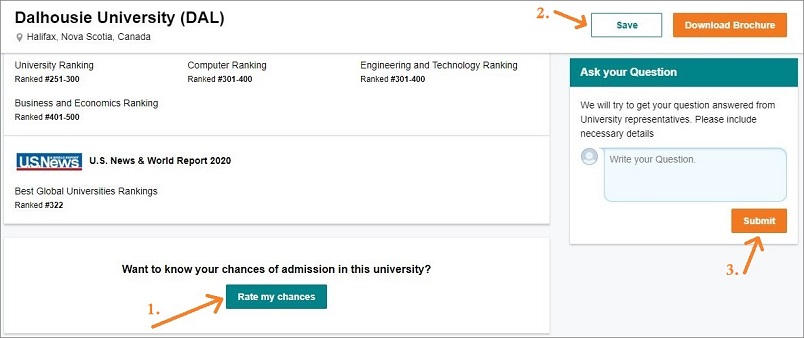
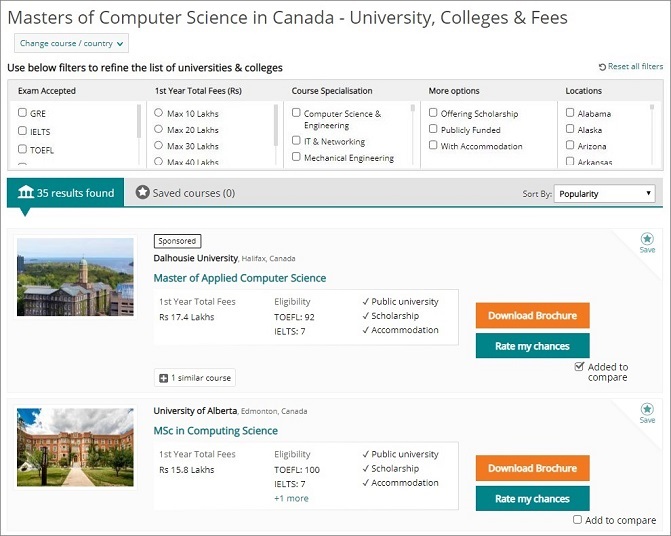

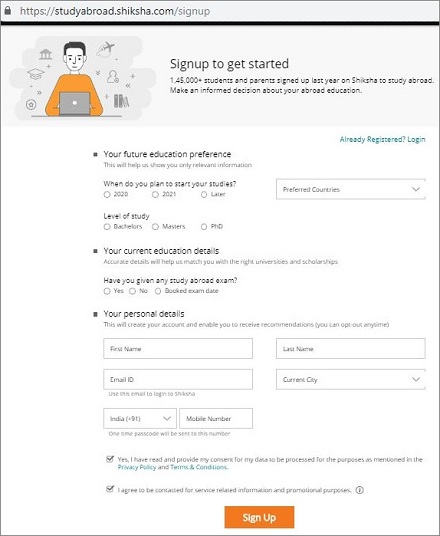
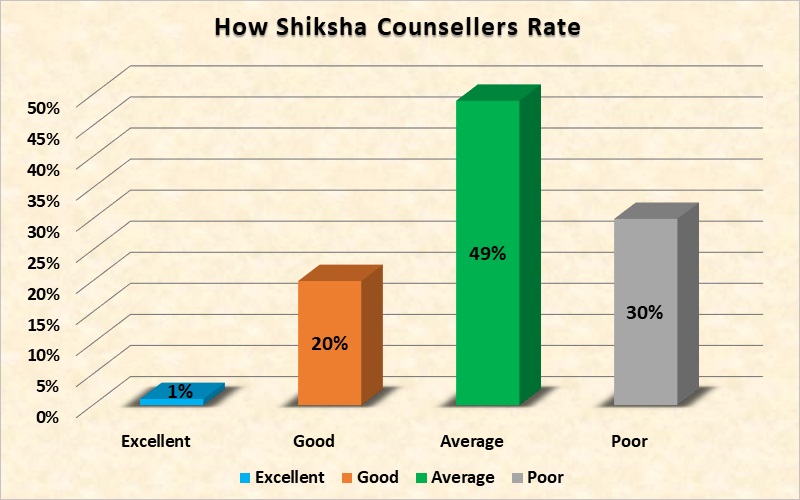
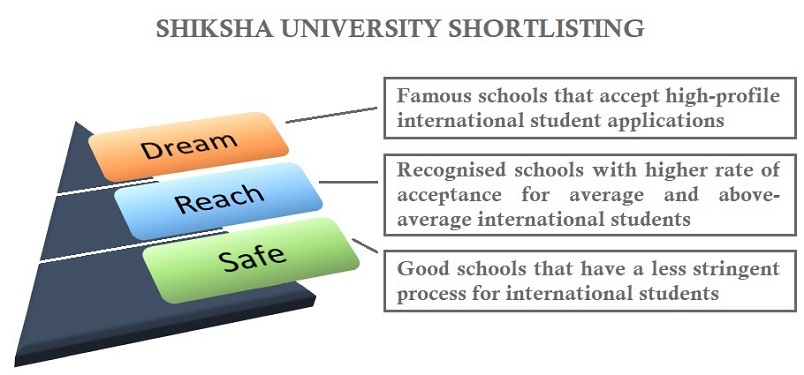
The Uttarakhand Board of School Education (UBSE) released the UK Board 12th time table 2026 on the official website ubse.uk.gov.in/. The UK 12th exam 2026 is being held between February 21 and March 20, 2026 in offline mode. Students can download the Uttarakhand Board date sheet Class 12 2026 on this page. Students are advised to download and save the UK 12th time table 2026.